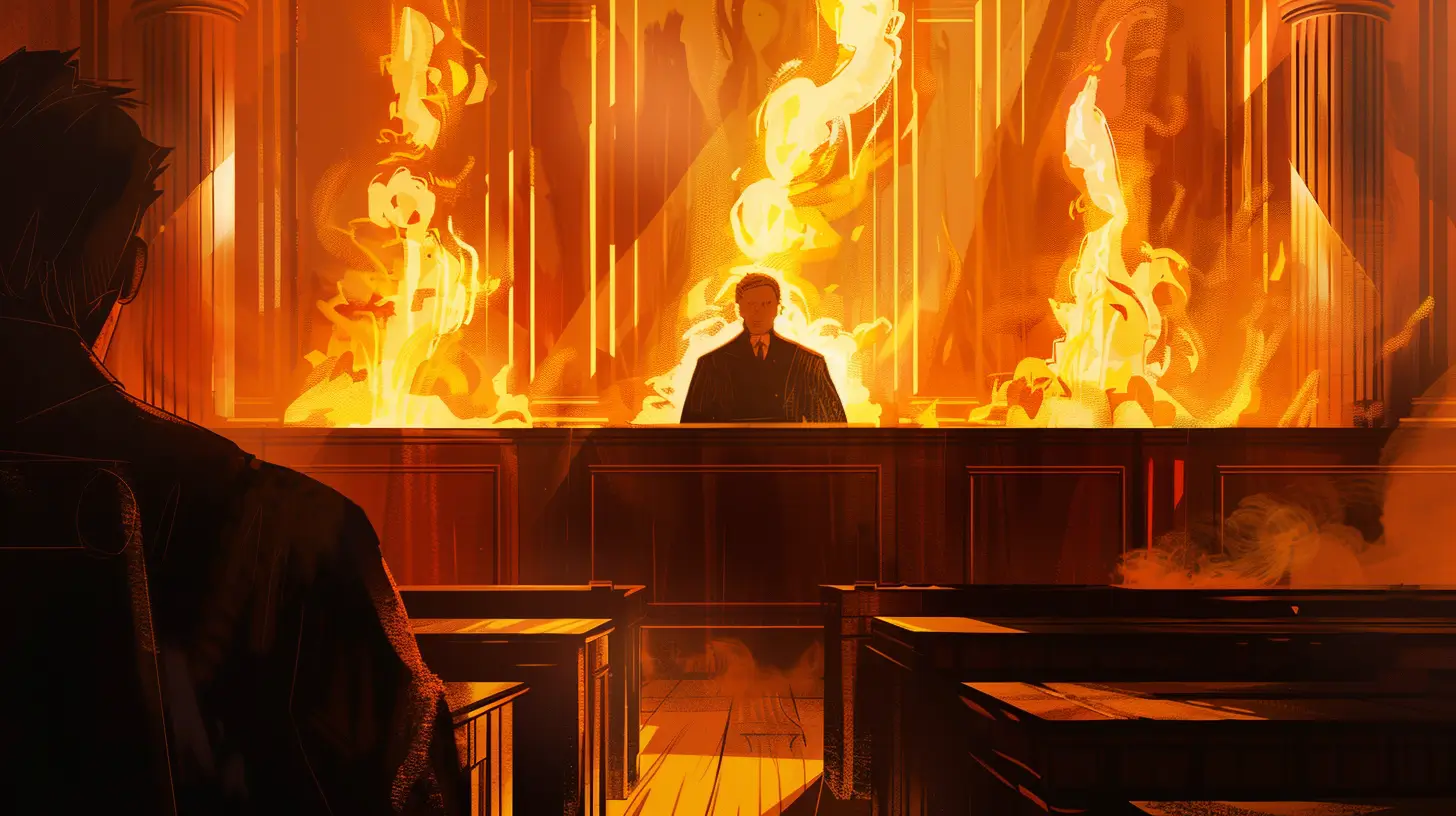September 21, 2025

Arson is one of the most serious property crimes under U.S. law. It involves the intentional setting of fires to buildings, land, or personal property, often with devastating consequences for victims, communities, and even the accused. Because of its destructive potential, arson is almost always treated as a felony, with penalties ranging from years in prison to lifelong criminal records.
This article provides a comprehensive look at arson charges, from their legal definition and classifications to defenses, penalties, and long-term consequences. Along the way, we’ll embed related legal resources to help you understand how arson fits within the broader criminal justice system.
At its core, arson is the willful and malicious burning of property. Most jurisdictions require intent or extreme recklessness for a charge to apply. Accidental fires, unless caused by negligence or another crime, are generally excluded.
To convict someone of arson, prosecutors usually must prove:
For context on how criminal intent is evaluated, you might explore the basics of a misdemeanor vs. a felony, since intent plays a central role in distinguishing different charges.
First-Degree Arson: This usually applies when the fire involves an occupied structure, putting lives directly at risk. Penalties are most severe here.
Second-Degree: ArsonThis often covers fires set to unoccupied buildings or vehicles.
Third-Degree Arson: Some states include reckless burning or smaller-scale fires in this category. For example, arson laws mirror the escalating seriousness you also see in the basics of a domestic violence charge, where the context determines the severity.
Arson often overlaps with other charges, including:
If you’re curious how arson might escalate to homicide charges, it’s helpful to review the basics of a felony, since felonies often build from the outcome of the crime.
Even after serving time, arson convictions remain on a criminal record. This can limit employment, housing, and financial opportunities. Many defendants later pursue remedies like getting a criminal record expunged or getting a record sealed.
Fire investigators often play a crucial role. Their testimony can either secure a conviction or dismantle the prosecution’s case. Similar to how the role of a medical expert in a personal injury claim shapes outcomes, fire experts shape arson cases.
Arrest and Charges : Arson suspects are often arrested on-site or after forensic investigation.
Preliminary Hearing: Courts evaluate whether enough evidence exists to proceed, similar to what happens at a preliminary hearing.
Plea Bargains: Some defendants negotiate reduced charges, echoing the strategies outlined in understanding the process of a plea bargain.
Trial: Prosecutors present forensic and eyewitness evidence, while defense attorneys challenge the reliability of fire investigations.
When minors are involved, arson is often handled differently. Juvenile courts may focus on rehabilitation rather than punishment, particularly if the fire was small or accidental. Still, serious cases may be tried in adult court.
Parents facing such situations may benefit from resources like what to do if you suspect parental kidnapping, which highlights how family law intersects with criminal allegations.
These scenarios show parallels with how to handle a defective product claim, where evidence and liability determine the outcome.
Defendants often turn to post-conviction strategies, including how to get a criminal record expunged, to regain opportunities.
Anyone facing an arson charge should seek immediate counsel. Criminal defense lawyers can evaluate evidence, explore plea deals, and defend at trial.
Guidance on how to find a reputable criminal defense lawyer and the benefits of a private defense attorney vs. a public defender can help individuals make informed choices.
For more insights into how attorneys approach criminal cases, read the process of a criminal case from arrest to verdict.
Arson charges are among the most severe property crimes in the legal system. Whether intentional or the result of reckless behavior, the consequences extend far beyond the courtroom. Understanding the legal process, potential defenses, and long-term effects can empower defendants and their families to make informed decisions.
If you or someone you know is facing an arson charge, consulting a criminal defense attorney should be your first step. The sooner you act, the more options you’ll have for protecting your future.
Stay up to date with the latest tips, expert insights, product reviews, and step-by-step guides to help you grow, create, and succeed—no matter your industry or passion.